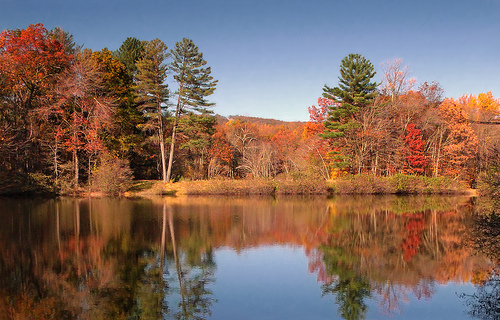
8 Simple Eco-Friendly Changes
Outdoor adventure helps to foster a sense of respect towards the environment, but when we’re not careful, we end up affecting the natural areas we spend time in without realizing it.
The next time you go hiking, camping, or on another outdoors adventure, try these eight suggestions to make your outdoor experience environmentally-friendly.
Buy Biodegradable Cutlery
One of the simplest changes you can make is to abandon cheap plastic forks and invest in biodegradable cutlery, such as bamboo. Not only will you find meals easier to eat with sturdier pieces of reusable cutlery, but in the event that you accidentally drop a knife and can’t find it, you can rest assured that it will simply return to the earth and break down naturally.
Invest in Gear that Lasts
When shopping for new gear, don’t be afraid to spend a little more on a higher quality product. A cheap outdoors-style backpack might cost $40, but it won’t last a few months and will just get thrown out, while the $150 to $200 will last far longer.
Lower-end companies will expect you to throw away your broken products and buy new ones. Companies selling high-quality products will oftentimes repair them for life. Patagonia, for example, allows customers send in any of their products at any time and they will fully repair it for free.
Eco-Friendly and Outdoor-Ready Cars
If you are in the market for a new vehicle and spend a lot of your time outdoors, you should consider one that balances fuel-efficiency with outdoor capability.
You do not want a car that will guzzle fuel or does not have enough room for your gear. A good choice would be some form of a crossover SUV. These cars are a crossover between a
traditional SUV and a hatchback or station wagon. They make for efficient rugged cars that do not waste much gas.
Leave the Disposable Packaging at Home
Whenever possible, leave packaging at home. Pack sandwiches together, pack food loosely in your backpack, and try not to use plastic bags as often as possible.
Consider using paper bags for small items, such as trail mix, and nets for larger items, like fruit. You will find it easier to keep track of your things when you have less packaging and trash in the way.
Don’t Use Plastic Water Bottles
This one might seem obvious, but it is amazing how many hikers choose to take single-use plastic bottles with them rather than use a reusable water bottle. Water bottles are dirt cheap and there is really no excuse to not have one.
Simply having something you can reuse over and over again is more useful than a single-use disposable bottle.
Forget Gasoline, use Better Kindling
Starting a fire can be tough sometimes, and it is easy to give up and squirt lighter fluid over the wood hoping it will catch eventually. This is a waste of lighter fluid and the fire often takes longer to be controllable when not done correctly.
One thing you could use instead of lighter fluid is used dryer sheets. You will be amazed how
much more quickly yet efficiently it burns and gets the rest of the fire going compared to the
instability and unfriendliness of lighter fluid and gasoline.
Leave No Trace Hiking: Stay on the Trails
The most important thing to keep in mind is to leave no trace. This doesn’t just mean not throwing your trash into the bushes, it also means staying on trails so as to not destroy native vegetation, and it means don’t take anything away from the natural area, like flowers, rocks, or other “collectibles.”
Ecosystems are incredibly fragile and removing any part of the formula or trampling off-trail can lead to a downfall in the health of the local environment.
Leave No Trace Camping: Keep It Contained
Similarly to hiking, leave no trace camping primarily means not polluting or trashing the area you are in. With camping, it also means keeping your campsite contained and clean. Loose gear and trash can blow away if not secured down or kept inside a tent or car and spreading out over a wide area can make the camp disorganized and messy.
The most important thing to do while camping, though, is to keep your campfire contained. Fires can get out of control quicker than most people think, so be sure to make a fire pit out of rocks, and don’t let the fire grow so large so that it cannot be handled.
And that’s it! What are some other simple ways you keep your mindset and lifestyle green?
 WhosGreenOnline.com Your Online Magazine and Directory for Green Business, Product, Service and News!
WhosGreenOnline.com Your Online Magazine and Directory for Green Business, Product, Service and News!

